Welcome Back! Or Welcome, if this is your first time reading my blog!
How has your journey in naming and acknowledging your emotions been so far? Taking the time to recognize and sit with our emotions is an important step toward understanding ourselves better and fostering emotional well-being. It’s not always easy, especially if we’ve been avoiding or suppressing our feelings for a long time. Remember, progress might be subtle at first, so be patient with yourself and celebrate every step you take.
If you’ve been practicing naming your emotions, you might wonder what’s next on this journey. While fixing everything might seem tempting, remember that emotional healing can take time and is often a gradual process. The good news is that you can still ease the stress on your system without fully understanding or managing all the complexities of your emotions right away.
You know that saying about needing to “sit” with your emotions? Yeah, it’s probably left many of us scratching our heads. What does that even mean, right? Don’t worry; you’re not alone if it sounds as clear as mud to you. There are so many different opinions out there about what it entails. But I’ll give you a quick rundown of some of the main ideas floating around, just in case one of them clicks with you. Then, I’ll share how God has personally guided me in this whole “sitting” business.
Truth is, most of us have developed some pretty creative ways to avoid facing our emotions – running, hiding, numbing, you name it! So, anything you can do to engage with them, even if it’s just dipping your toe in, is awesome! There’s no need to stress about getting it “right.” Embrace your journey, and let’s celebrate every step forward!
“Sitting with your emotions” involves acknowledging and experiencing your feelings without avoidance or judgment. It’s about being present with your emotions, allowing them to arise, and observing them without the need to act on them immediately. This will develop increased emotional awareness, self-understanding, and better emotional regulation.
Here are some specific ways to sit with your emotions:
Mindful Breathing: Take a moment to focus on your breath, observing each inhale and exhale. Notice the emotions that may arise without trying to change or analyze them.
Journaling: Write down your feelings and thoughts in a journal, exploring the emotions you experience and the events that trigger them.
Body Scan: Pay attention to physical sensations associated with your emotions, like tension or butterflies in the stomach. Sit with these sensations and observe them without judgment.
Visualization: Observe your emotions from a distance, like clouds passing by. Allow them to come and go without attachment, knowing that they are temporary.
Creative Expression: Engage in creative activities to express your emotions. Drawing, painting, or writing poetry can offer an outlet for processing and releasing emotions.
Self-Compassion: Be gentle with yourself during this process. Avoid self-criticism or judgment for experiencing certain emotions. Remember, it’s okay to feel emotions—they are a natural part of being human.
Sharing with a Trusted Person: If you feel comfortable, talk to someone you trust about your emotions. Sharing with a supportive friend or family member can provide validation and understanding.
These can all be helpful ways to experience emotions. However, if you’ve been hanging out with me for a while, you know I’m all about bringing God into the everything. So, I’ve got some awesome suggestions for what you can do once you’ve pinpointed those emotions on the wheel, and they involve connecting with God. I hope it will help you as much as it has helped me!
God actually has a lot to say about emotions. It’s true that you won’t find the exact term “sitting in your emotions” in the Bible, but guess what? God totally encourages us to come to Him with all our feelings. Now, just like the ‘sitting with’ part, you might be wondering how exactly that looks like, right? I hope these pointers will help you out!
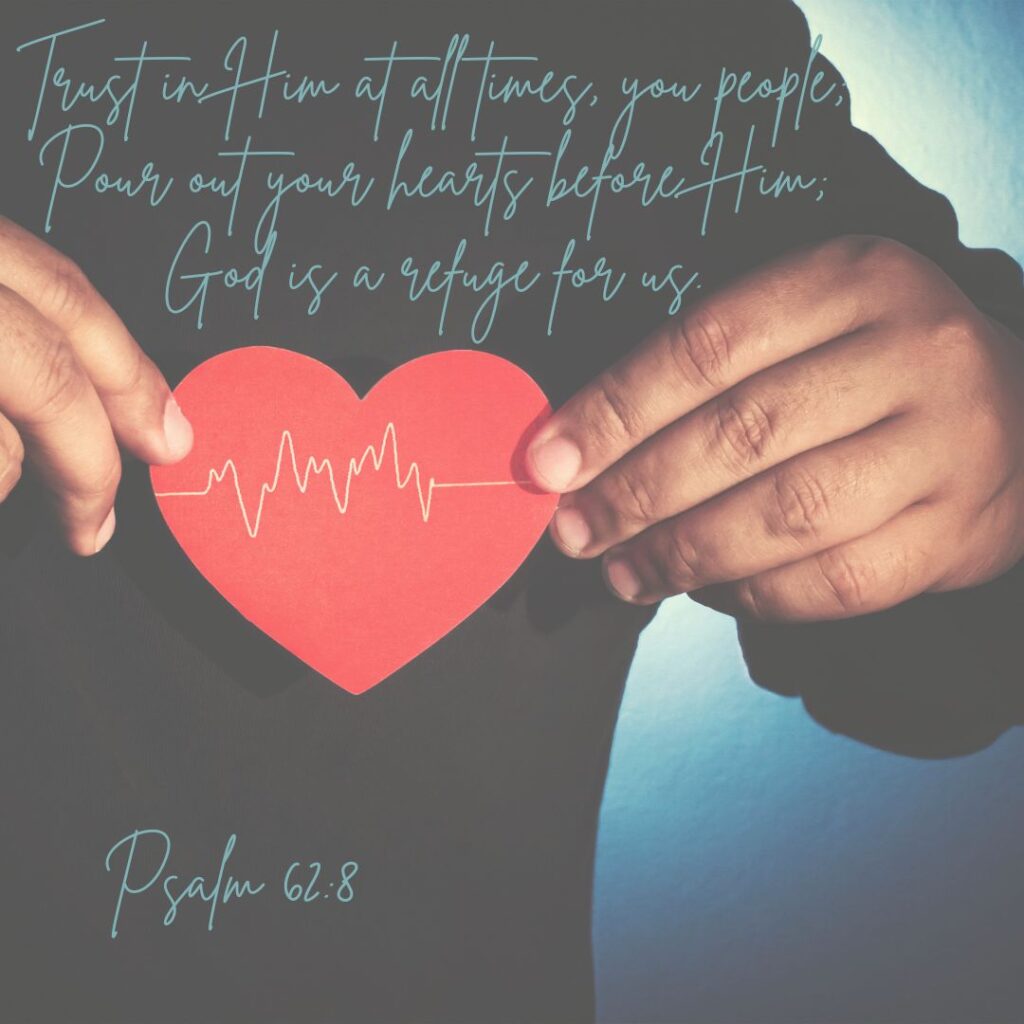
One of the things I absolutely love about God is how He invites us to be honest with Him. He’s not interested in pretense; He looks straight into our hearts and encourages us not to hide from Him. Remember Adam and Eve? When they felt ashamed and tried to hide, God sought them out and initiated a dialogue with them. It’s a beautiful reminder that God wants us to come to Him just as we are, emotions and all.
Now, I get it, some churches or families might make you feel like certain emotions are “bad” or worthy of shame and judgment. But guess what? God doesn’t see it that way. He doesn’t label emotions as right or wrong; instead, He wants us to be aware and intentional with how we handle them, so we don’t end up sinning because of them or in them. Speaking of sin, the Bible does warn us against letting our emotions lead to sinful expressions. For example, getting so angry that it turns into unrighteous anger (Ephesians 4:26-27) or letting sorrow spiral into despair (2 Corinthians 7:10). Instead, God encourages us to bring our emotions under His control and seek His help in processing them in a way that honors Him.
Let me tell you something really important – bottling up emotions is like shaking a soda can; it’s bound to explode sooner or later. Take shame, for instance. If we try to hide it and keep it in the dark, we’ll likely end up tempted to cover up things or even lie. And you know what? The same goes for anger. If we don’t talk about it, it can build up like a pressure cooker, and eventually, it might explode in resentment towards someone else or worse. So, my friend, don’t fear admitting what you’re feeling. It might not always be easy to figure out the exact reasons behind your emotions, but being upfront and honest with yourself and with God is an incredibly liberating step. It’s like a weight lifted off your shoulders.
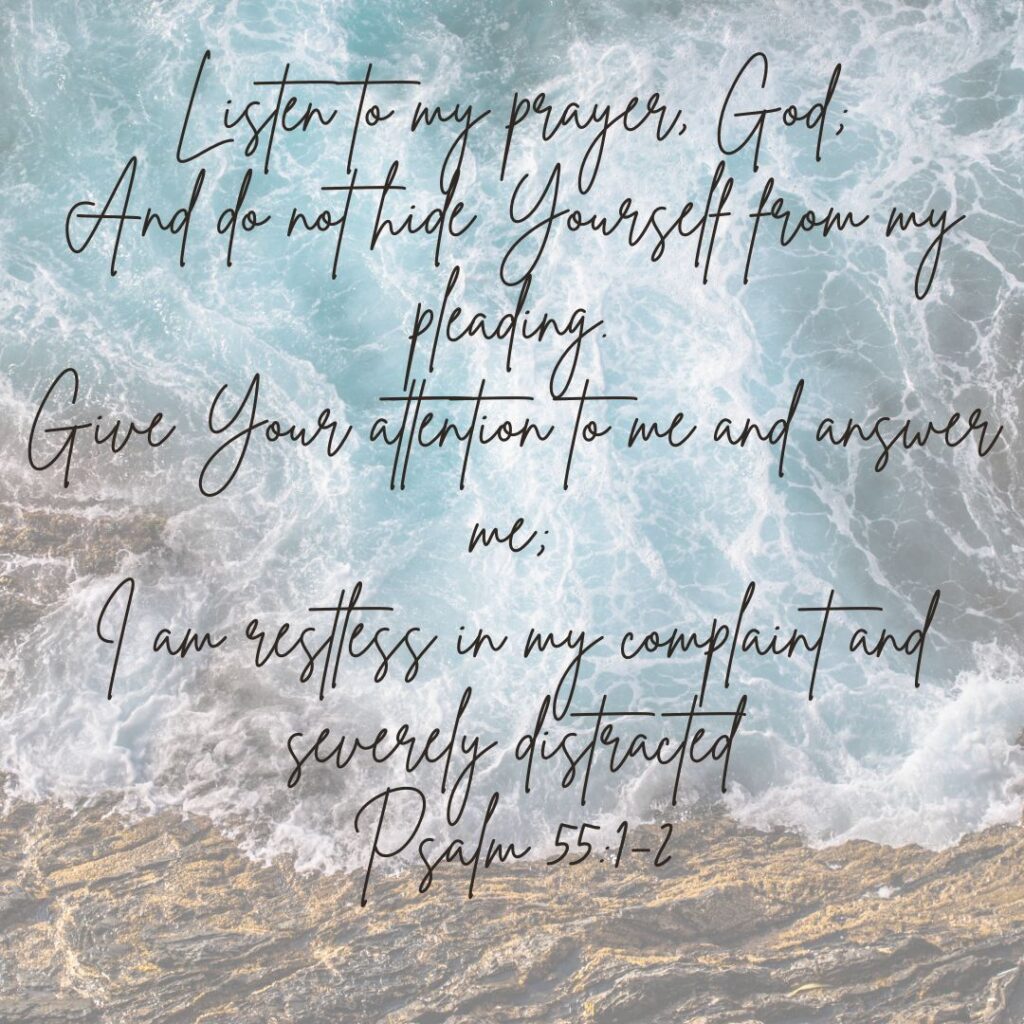
My next favorite thing is probably to take the Psalmists’ lead and pouring out everything before God—no holding back, the good, the bad, and the ugly. He can handle it all, you know. After all, He already knows everything about us anyway. So, here’s a suggestion: instead of just journaling your thoughts, why not turn it into a personal letter to God? It’s like having a heart-to-heart conversation with Him on paper.
It’s like what Paul encourages us to do in Philippians 4:4-8—tell God everything. Hold nothing back. He wants to hear it all, the joys, the struggles, the worries, and the requests. It’s a safe space where we can be real and honest with Him. Remember Psalm 139:23-24? It’s like that—inviting God to search our hearts, to know our anxious thoughts, and to reveal anything in us that needs His guidance and transformation. It’s an eye-opening experience, gaining insight into areas where we need His loving touch and healing.
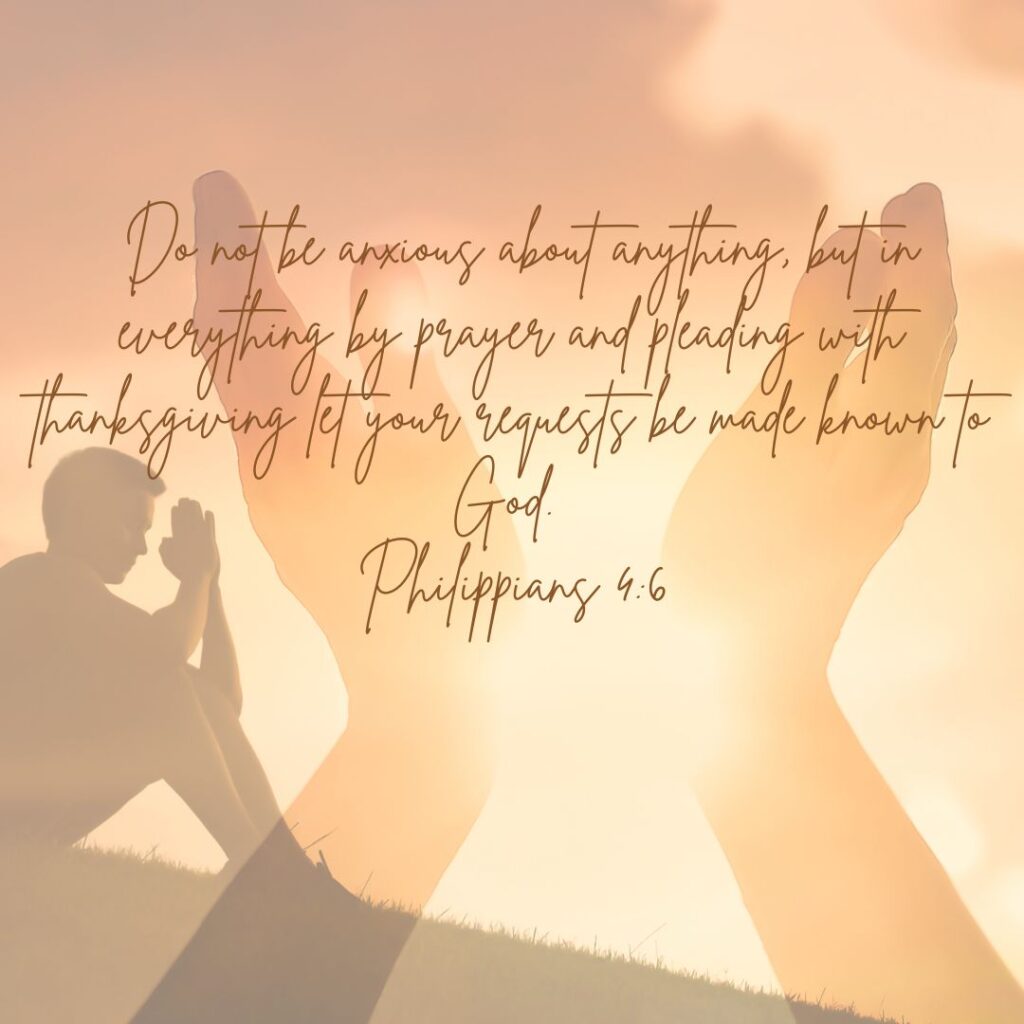
So, grab that journal, find a quiet place, and start pouring your heart out to God. Trust me, it’s a heartwarming and soul-nourishing practice that strengthens your connection with Him. He’s there, ready to listen, comfort, and guide you every step of the way.
While we are encouraged to tell God everything, A very wise thing interpersonally is to be Slow to Speak and Quick to Listen: James 1:19 advises, “My dear brothers and sisters, take note of this: Everyone should be quick to listen, slow to speak, and slow to become angry.” This verse highlights the importance of pausing and listening, including to our own emotions, before responding. Taking the time to sit with our emotions allows us to respond thoughtfully rather than react impulsively. Psalm 4:4 also has a thing to say about anger that most of us probably have not heard in light of Ephesians 4, and that is to actually think about it for a while and not say anything.
One incredibly comforting and beneficial thing for me to do from here is this: After pouring out all my emotions to God, I’ve learned to listen for His response. And let me tell you, it’s an amazing practice I encourage you to try too. When I take the time to hear Him speaking to me, I feel this overwhelming sense of love, validation, and gentleness. It’s truly healing, even if there aren’t immediate solutions. God has a way of being kind and gentle, even when He has some challenging things to say. Someone else may be pointing out the same challenging thing but I often find His words are so much easier to stomach. That’s been my experience, and it’s a beautiful thing.
A little tip—when you listen for God’s voice, make sure it aligns with His character and biblical principles. That way, you won’t get confused. You can cross-check what you hear with the Bible and chat with a wise, godly person you trust. It’s always good to seek that extra bit of guidance to make sure you’re on the right track. This practice of hearing from God can be life-changing, and it deepens your relationship with Him in ways that will bless you.
As we wrap up, I want to share that these steps I’ve shared have been truly transformative for me personally. While it’s okay to spend time with ourselves and journal privately, I’ve found incredible benefits in involving God from the start. Remember, naming and sitting with our emotions are valuable steps, but they’re not the end of the journey. There’s more we can do to go deeper and heal from past wounds that might be triggering negative emotions.
In the upcoming discussions, we’ll explore how to investigate our emotions, listen to what they’re trying to tell us, and find healing from any underlying hurts. You don’t have to feel helplessly stuck in a sea of cortisol until you reach that point. Finding safety in honesty and receiving comforting and validating messages from God can set you on a path towards deeper healing.
I’d love to hear from you about how this practice is bringing peace to your emotional world! Until next time, remember to be intentional with yourself, but also kind, patient, and compassionate with your journey. You’re on the right path, and with God’s guidance, you’ll find the healing and growth you long for.
P.S. I have a ‘Cheat Sheet’ Bookmark you can print and use in your journal to remind yourself of some helpful steps for emotion processing from Philippians 4:6-8
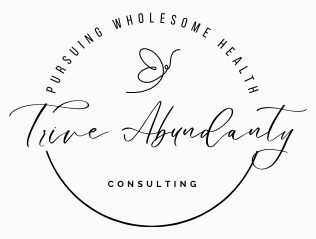

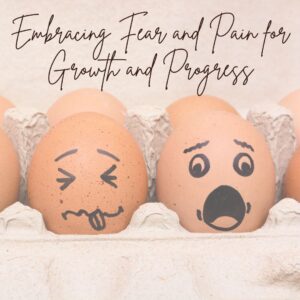





My biggest takeaway is to pause before speaking. I definitely have a tendency to feel something and act on it immediately. It may be saying Yes to someone. It may be something I see that I want to purchase. It may be a comment or response to someone who is confusing in me. Before I jump, I love the reminder to pause and see what’s happening. Maybe I haven’t asked God before saying yes. Maybe I don’t need to spend that money right now. Maybe my friend isn’t asking for a solution but merely needing a shoulder. I need to practice the pause over and over!
I’m with you, Vickie! I have to remind myself there is no deadline for me to make a decision in most cases! I am pausing with you. 🥰